Net Neutrality: a topic that has been discussed frequently in the past year. To preface this topic, Net neutrality (also known as Open Internet) is a product of the Federal Communications Commission (FCC). It was “adopted on February 26, 2015 and are designed to protect free expression and innovation on the Internet and promote invest in the nation’s broadband networks” (read more about it here). The Open Internet rules went into effect on June 12, 2015, but lately they’ve been under scrutiny. Having an open internet is important for consumers and businesses alike.
Not long ago, there was a bill that is expected to be signed to overturn the broadband privacy regulations, which would have taken effect towards the end of the year. “The Administration strongly supports House passage of S.J.Res. 34, which would nullify the Federal Communications Commission’s final rule titled “Protecting the Privacy of Customers of Broadband and Other Telecommunication Services,” 81 Fed. Reg. 87274 (December 2, 2016″ ( Source: whitehouse.gov).
There are two major things that are affected by Net neutrality: your privacy and favoritism on the internet.
How would this affect your privacy? Internet Service Providers (ISPs) collect all kinds of data imaginable on the websites people view. This ranges from medical to financial and other personal information. With open internet in effect ISPs would have to ask for permission to be able to sell you information to advertisers and other companies, also known as opt-in provision. Without open internet it can be very likely that your Internet Service Provider will, and might, sell off your information for profit without thinking how it could affect you. Advertisements will be customized a lot more to your needs, and any company could purchase your information (think about insurance companies knowing all your information as well).
In order to prevent favoritism three critical practices were banned by net neutrality, all of which would have a direct impact on internet usage and promote favoritism, include the following:
No Blocking: “broadband providers may not block access to legal content, applications, services, or non-harmful devices.” This is pretty self-explanatory, so I won’t go into detail.
Throttling: “broadband providers may not impair or degrade lawful Internet traffic on the basis of content, applications, services, or non-harmful devices.”
“Fast Lanes” / Paid Prioritization: “broadband providers may not favor some lawful Internet traffic over other lawful traffic in exchange for consideration of any kind—in other words, no “fast lanes.” This rule also bans ISPs from prioritizing content and services of their affiliates.” As a website owner, you could pay a broadband provider to “cut to the front of line” and load your website faster.
The way the internet works is almost like a tunnel, where information passes through one by one. The people that choose to pay a premium to “cut the lines” will have their information pushed out and delivered faster to consumers. If you are not one of these “premium members” then during times of congestion and heavy internet usage, your website will be loaded slower to you audience.
Broadband Providers will be able to form few limited and exclusive third-party relationship to avoid competition. Let’s use a purely hypothetical situation. Imagine if Google pays Verizon to load super fast while Bing pays Comcast. There can be an agreement that neither of them will pay for each others broadband providers and be the fastest search engines on the respective providers. These business strategies are often anti-consumer and anti-competitive because it means that the provider services can avoid competing with each other on their core access services.
51% of Americans can not choose their ISP, as there is only one provider of high-speed Internet provider in their area. If their ISP decided\s to sell their information then there is nothing that can be done about it, assuming you don’t want to stop using the Internet. On top of that only 38% have access to more than on ISP (the remaining ~10% don’t have access to high-speed internet at all). The data was obtained from FCC’s 2016 report and a map based on FCC’s data.
Some people may prefer having having advertisements more target to them, as it helps in picking out products without having to do much shopping around, but others can be appalled by the thought of having their actions on the internet being sold. Net neutrality is a topic that will be a constant battle between the consumer and providers, and will always affect business so it is good to keep an eye on this topic.








